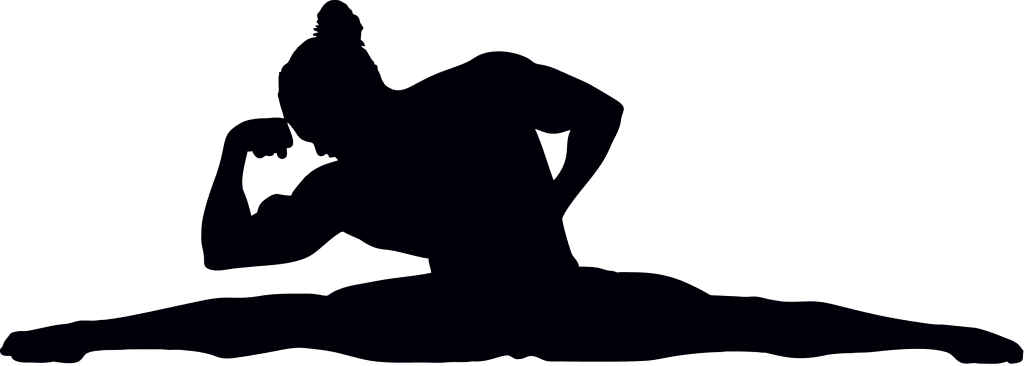
Bodybuilding is a sport that requires a great deal of dedication, discipline, and hard work. It is a lifestyle that involves strict dieting, intense training, and constant monitoring of one’s physique. However, what happens when a bodybuilder decides to retire from the sport? What is life like after bodybuilding?
The transition from bodybuilding can be challenging for many athletes. After years of focusing solely on their physique, they may find it difficult to adjust to a new way of life. They may struggle with body image issues, feel lost without the structure of their training and dieting regimen, and even experience depression or anxiety. However, with the right mindset and support system, it is possible to successfully navigate this transition and find fulfillment in new pursuits.
In this article, we will explore the various aspects of life after bodybuilding, including the health implications of retiring from the sport, career shifts, social impact, and maintaining fitness post-bodybuilding. Will also provide tips and advice for those who are struggling with this transition, as well as answer some frequently asked questions.
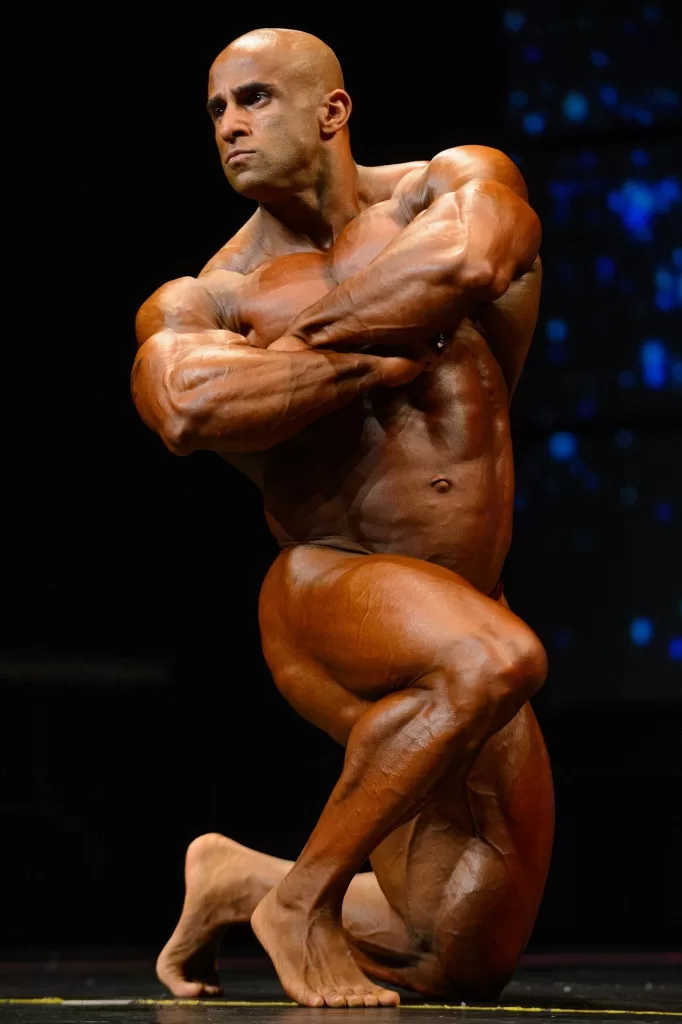
Key Takeaways
- Retiring from bodybuilding can be a challenging transition, but with the right mindset and support system, it is possible to find fulfillment in new pursuits.
- It is important to consider the health implications of retiring from the sport, and to make sure that one’s body is able to handle the changes in activity level and diet.
- Maintaining fitness post-bodybuilding requires a different approach than training for competitions, and it is important to find activities that are enjoyable and sustainable in the long term.
Table of Contents
Life After Bodybuilding: Transition
Bodybuilding can be a rewarding experience, but it is not a lifelong pursuit. Eventually, most bodybuilders will need to transition away from the sport and into a new phase of life. This transition can be challenging, both physically and mentally. Here are some of the changes that bodybuilders may experience as they make the transition away from the sport.
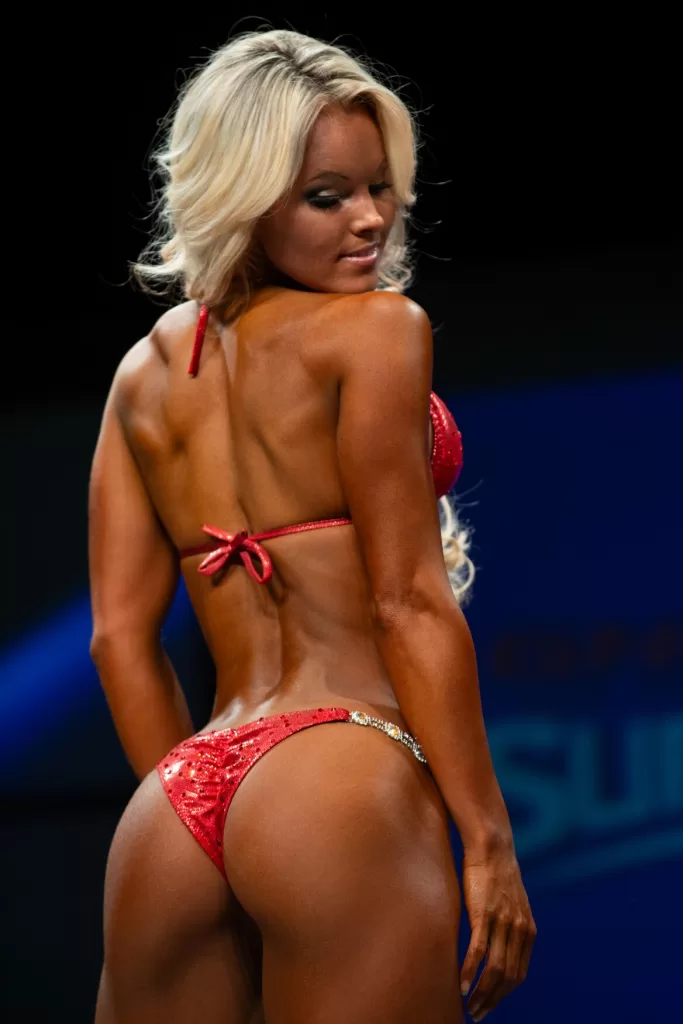
Physical Changes
Bodybuilding places a significant amount of stress on the body. As a result, many bodybuilders may experience physical changes as they transition away from the sport. Some of these changes may include:
- Decreased muscle mass: Without the intense training and dieting required for bodybuilding, many bodybuilders may experience a decrease in muscle mass.
- Changes in body composition: Bodybuilders may also experience changes in body composition, with an increase in body fat and a decrease in lean muscle mass.
- Joint pain: Bodybuilding can be hard on the joints, and many bodybuilders may experience joint pain as they age.
Mental Adaptation
The transition away from bodybuilding can also be mentally challenging. For many bodybuilders, the sport is a significant part of their identity. As they move away from the sport, they may struggle to adapt to a new sense of self. Some of the mental changes that bodybuilders may experience include:
- Loss of motivation: Without the goal of competing in bodybuilding competitions, many bodybuilders may struggle to find the motivation to continue training.
- Changes in self-image: Bodybuilders may also experience changes in their self-image as they transition away from the sport. They may struggle to adjust to a new body shape or may feel like they are no longer as strong or fit as they once were.
- Emotional challenges: The transition away from bodybuilding can also be emotionally challenging. Bodybuilders may experience feelings of loss, sadness, or even depression as they adjust to a new phase of life.
The transition away from bodybuilding can be a challenging process. Bodybuilders may experience physical changes, such as a decrease in muscle mass and an increase in body fat, as well as mental changes, such as a loss of motivation and changes in self-image. However, with time and patience, bodybuilders can adapt to a new phase of life and find new ways to stay healthy and active.
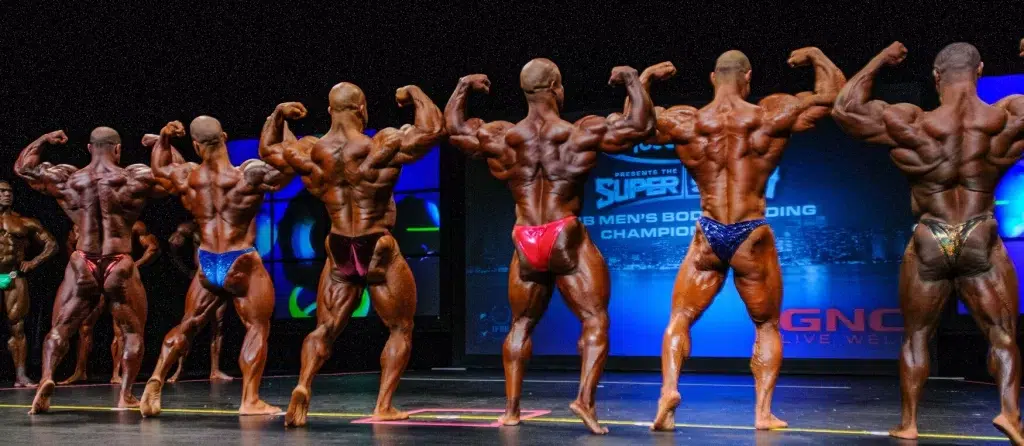
Health Implications
Competitive bodybuilding is a sport that requires strict dieting, weight training, and cardio to achieve a muscular physique. While bodybuilding can be beneficial to one’s health when done correctly, it can also have long-term health implications.
Long-Term Effects of Bodybuilding
Studies have shown that bodybuilding can have negative long-term effects on one’s health.
- Reduced fertility: Studies have shown that bodybuilding can reduce fertility in both men and women. This is due to the use of anabolic steroids and other performance-enhancing drugs, which can disrupt the body’s hormonal balance.
- Mood swings: Bodybuilding can also cause mood swings and other mental health issues. This is due to the intense training and dieting required for the sport, which can cause stress and anxiety.
- Increased risk of cardiovascular issues: Bodybuilders are at an increased risk of developing cardiovascular issues such as high blood pressure, heart attack, and stroke. This is due to the strain placed on the heart and blood vessels during weightlifting and other forms of exercise.
- Liver damage: Anabolic steroids used by bodybuilders can cause liver damage, which can lead to serious health issues.
- Electrolyte imbalances: Excessive dieting and dehydration can lead to electrolyte imbalances, which can cause muscle cramps, weakness, and even kidney damage.
- Joint pain and injuries: Bodybuilding can also lead to joint pain and injuries due to the high intensity of weightlifting.
To maintain good health after retiring from bodybuilding, it is important to adopt a balanced lifestyle that includes eating a balanced diet rich in protein, carbohydrates, and healthy fats, engaging in regular physical activity that includes both resistance training and cardiovascular exercise, and avoiding performance-enhancing drugs. It is also important to seek medical attention if necessary and employ regular blood work.
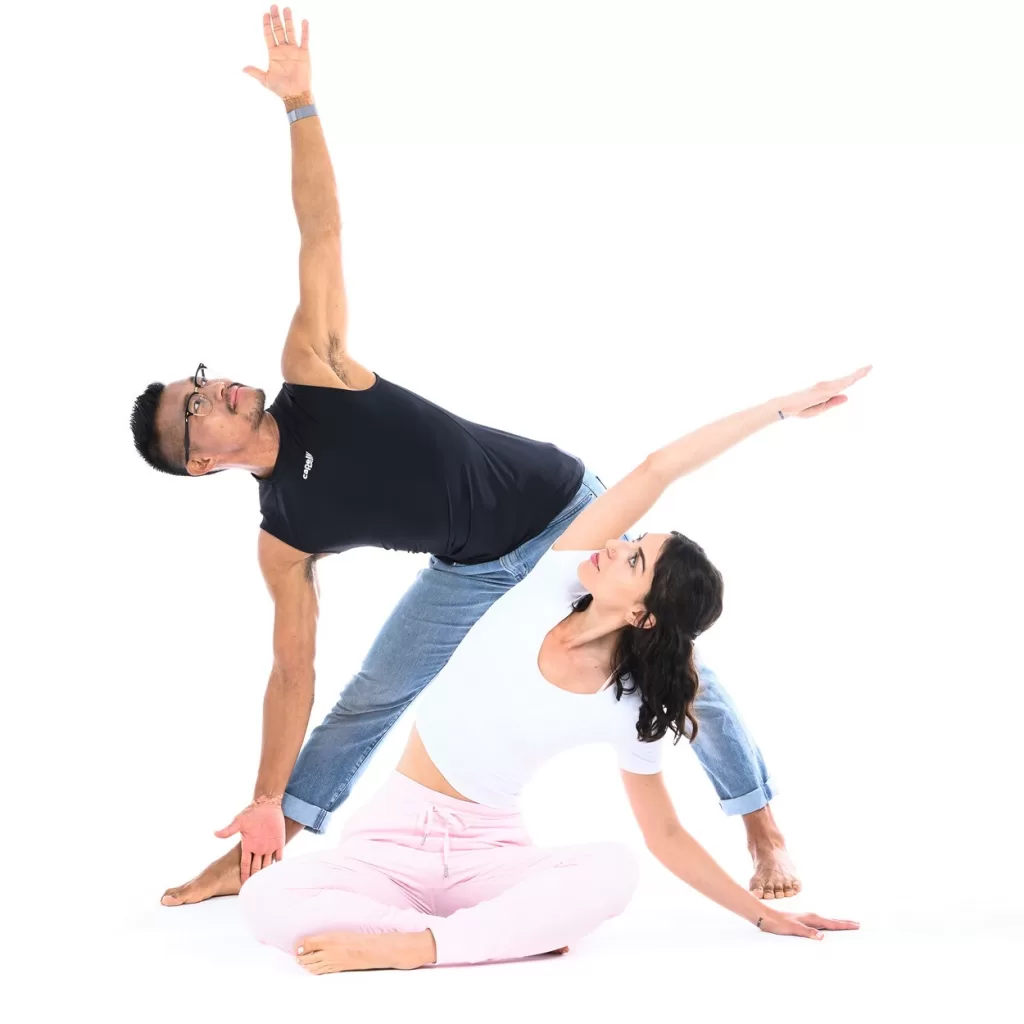
Adopting a Balanced Lifestyle
After retiring from bodybuilding, it is important to adopt a balanced lifestyle to maintain good health. Here are some tips and information that can help:
- Eating a Balanced Diet: Bodybuilders often follow strict diets that are high in protein and low in carbohydrates and fats. However, after retiring from bodybuilding, it is important to adopt a more balanced diet that includes all the necessary nutrients. A balanced diet should include plenty of protein, carbohydrates, and healthy fats. Nutrient-rich foods such as fruits, vegetables, whole grains, and lean proteins should be included in the diet.
- Regular Physical Activity: Regular physical activity is important for maintaining good health after retiring from bodybuilding. It is important to engage in both resistance training and cardiovascular exercise to maintain muscle mass and cardiovascular health. Alternative fitness routines such as yoga, Pilates, and cardio workouts can be just as effective as weightlifting.
- Avoiding Performance-Enhancing Drugs: Bodybuilders often use anabolic steroids and other performance-enhancing drugs to enhance their muscle growth. However, these drugs can have long-term health implications. After retiring from bodybuilding, it is important to avoid these drugs and focus on natural and sustainable training methods.
- Maintaining Hormonal Equilibrium: Bodybuilding can affect hormonal balance, and it is important to maintain hormonal equilibrium after retiring from the sport. This can be achieved through a balanced diet, regular physical activity, and stress management techniques such as meditation and yoga.
Career Shifts
Bodybuilding is a demanding sport that requires a lot of time, dedication, and hard work. As athletes age, their bodies may not be able to handle the same level of intensity, and they may need to consider transitioning to a different career. Fortunately, there are many career opportunities available for retired bodybuilders.
From Athlete to Coach
One popular career shift for retired bodybuilders is to become a coach. Bodybuilding coaches can work with athletes at all levels, from beginners to professionals. They help athletes develop training programs, provide guidance on nutrition and supplements, and offer support and motivation. Coaches can work independently or as part of a larger organization, such as a gym or sports team.
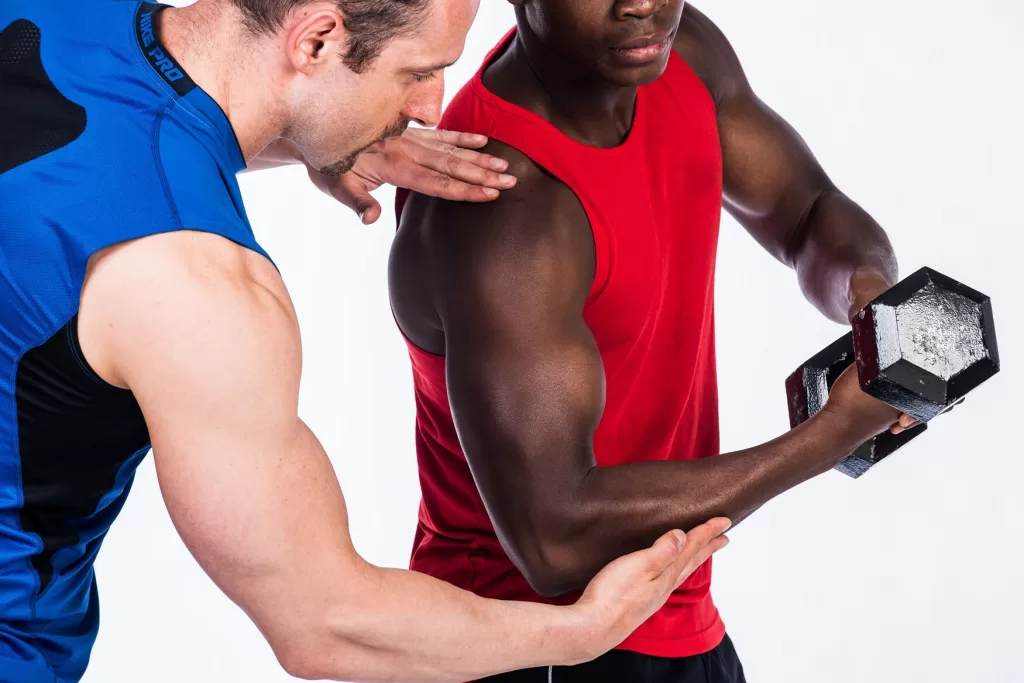
To become a bodybuilding coach, retired bodybuilders should have a strong understanding of the sport and its requirements. They should also have excellent communication and interpersonal skills, as they will need to work closely with athletes and other coaches. Some coaches may also need to have certifications or degrees in sports science or related fields.
Other Professional Opportunities
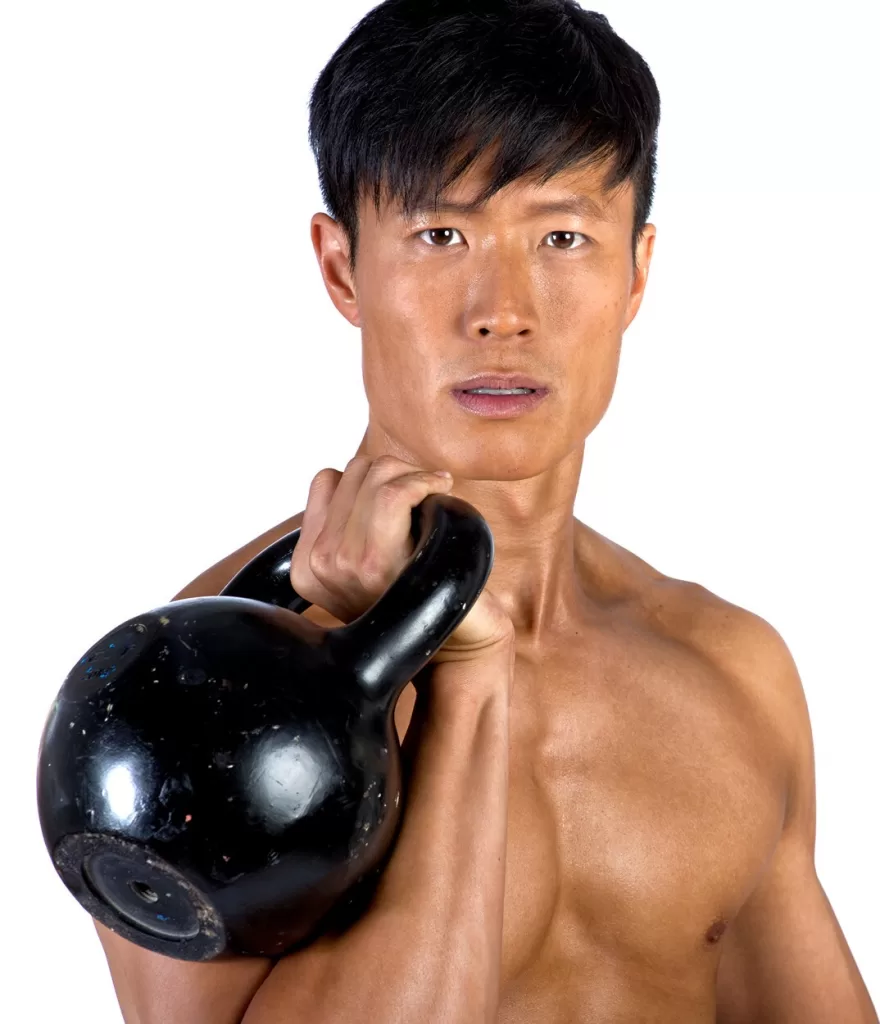
Retired bodybuilders can also explore other professional opportunities outside of coaching. For example, they may choose to become personal trainers, fitness instructors, or nutritionists. These professions allow retired bodybuilders to continue working in the fitness industry while focusing on different aspects of health and wellness.
Another option for retired bodybuilders is to become fitness models or influencers. Fitness models are hired to promote products and services related to health and fitness, while influencers use social media to share their fitness journeys and promote products to their followers. These professions can be lucrative, but they require a strong social media presence and a willingness to promote products to their audience.
Overall, there are many career opportunities available for retired bodybuilders. Whether they choose to become coaches, personal trainers, nutritionists, or fitness models, retired bodybuilders can continue to use their knowledge and expertise to help others achieve their fitness goals.
Social Impact
Bodybuilding can have a significant impact on an individual’s social life. Here are some points that explore this impact in more detail:
- Perception and Stereotypes: Bodybuilding often leads to a certain perception and stereotypes. People who engage in bodybuilding may be seen as vain or self-obsessed due to their focus on physical appearance. This can affect how others perceive them and may lead to misunderstandings or judgments.
- Social Isolation: Bodybuilding requires a high level of dedication and discipline, which can lead to social isolation. Bodybuilders often have strict diets and workout schedules that may make it challenging to socialize with others who do not share the same lifestyle. This can result in feelings of isolation and difficulty maintaining friendships or romantic relationships.
- Body Image Issues: Bodybuilders may struggle with body image issues, including body dysmorphia. Body dysmorphia is a condition where individuals perceive themselves as smaller or less muscular than they actually are. This can lead to a distorted self-image and negative self-esteem.
- Impact on Relationships: The demands of bodybuilding can put strain on relationships. Bodybuilders may prioritize their training and diet over social activities, which can lead to conflicts and difficulties in maintaining relationships. It is important for bodybuilders to find a balance between their passion for bodybuilding and their social life.
- Positive Influence: On the other hand, bodybuilding can also have a positive impact on an individual’s social life. It can inspire others and serve as a source of motivation and inspiration. Bodybuilders who share their journey and transformation stories can inspire others to pursue their own fitness goals.
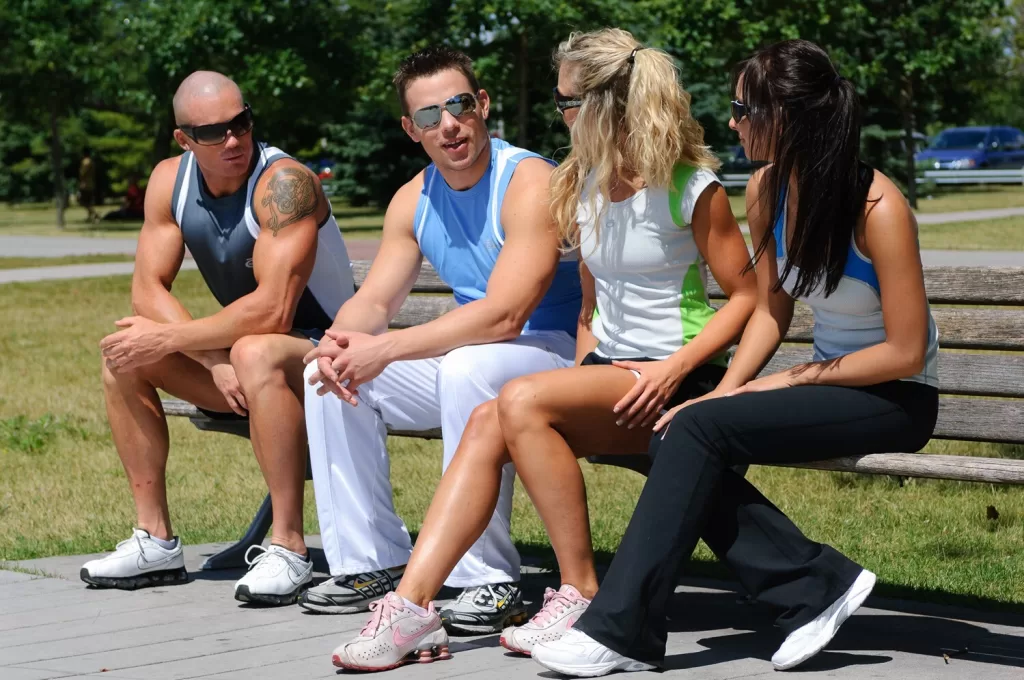
Personal Identity
For many bodybuilders, their physique is a significant part of their identity. They have worked hard to achieve their goals and take pride in their appearance. However, this can also lead to an unhealthy obsession with their body image. Body dysmorphia is a condition that affects many bodybuilders, causing them to perceive themselves as smaller or less muscular than they actually are.
When bodybuilders stop competing or lose interest in the sport, they may struggle to adjust to their new identity. They may feel lost or uncertain about who they are without their muscular physique. This can lead to depression and anxiety.
Overall, bodybuilding can have both positive and negative effects on an individual’s social life. While it can lead to improved physical appearance and self-confidence, it can also lead to negative stereotypes and feelings of isolation. It is essential for individuals to maintain a healthy balance between their bodybuilding goals and their social life to avoid negative consequences.
Maintaining Fitness Post Bodybuilding
After retiring from bodybuilding, it’s important to continue maintaining fitness to ensure a healthy lifestyle. Here are some tips for maintaining fitness post-bodybuilding.
Alternative Fitness Routines
While bodybuilding is a great way to build muscle and strength, it’s not the only way to maintain fitness. Alternative fitness routines such as yoga, Pilates, and cardio workouts can be just as effective. These routines can also help prevent injuries and provide a well-rounded fitness regimen.
Yoga is a great way to improve flexibility and balance, and it can also help reduce stress. Pilates is a low-impact workout that focuses on core strength and stability. Cardio workouts, such as running or cycling, can help improve cardiovascular health and burn calories.
Nutrition for Non-Bodybuilders
Nutrition is an important aspect of maintaining fitness post-bodybuilding, but it doesn’t have to be as strict as a bodybuilder’s diet. A balanced diet that includes a variety of whole foods can provide all the necessary nutrients for a healthy lifestyle.
Protein is still important for maintaining muscle mass, but it doesn’t have to come from supplements or excessive amounts of meat. Plant-based protein sources such as beans, lentils, and tofu can provide all the necessary amino acids.
Carbohydrates are also important for energy, but it’s important to choose complex carbohydrates such as whole grains, fruits, and vegetables. These provide fiber and other important nutrients that are lacking in simple carbohydrates such as sugary snacks and processed foods.
Remember, maintaining fitness post-bodybuilding is important for overall health and well-being. Alternative fitness routines and a balanced diet can provide all the necessary components for a healthy lifestyle.
Some Useful Links:
- “How can strength training build healthier bodies as we age?” – This article from the National Institute on Aging discusses the benefits of strength training for older adults. While it doesn’t specifically address bodybuilding, it does provide some information on the importance of strength training for maintaining muscle mass and overall health.
- “Bodybuilding Meal Plan: What to Eat, What to Avoid” – This article from Healthline provides information on the types of foods that bodybuilders should eat to support their muscle growth. While it doesn’t specifically address the long-term effects of bodybuilding, it does provide some insights into the importance of proper nutrition for bodybuilders.
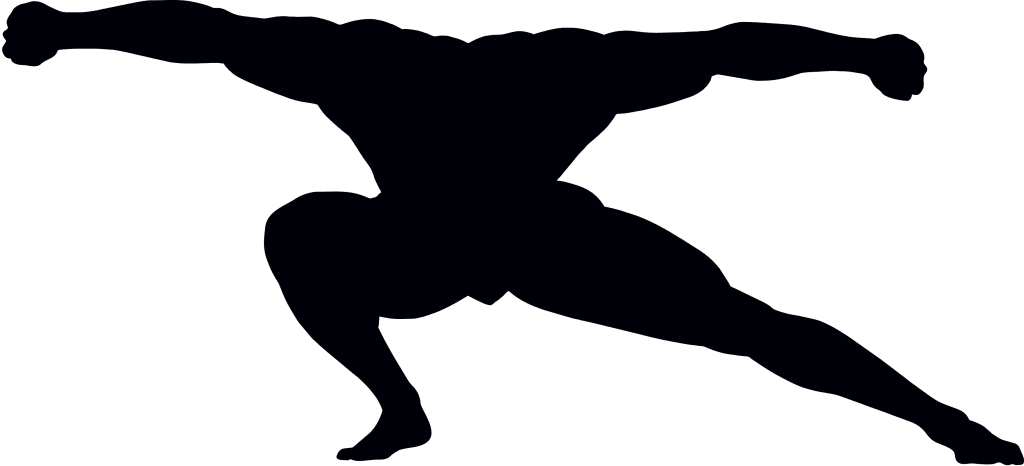
Conclusion
Bodybuilding can be an intense and demanding activity that requires a significant amount of time, dedication, and discipline. However, like all good things, it eventually comes to an end. Whether due to age, injury, or simply a change in priorities, there comes a time when bodybuilders must transition to a new phase of their lives.
Fortunately, life after bodybuilding can be just as fulfilling and rewarding as the sport itself. By maintaining a healthy lifestyle and continuing to exercise regularly, former bodybuilders can enjoy a wide range of physical and mental benefits. Some of the key takeaways from this article include:
- Maintain a healthy diet: Even after retiring from bodybuilding, it is important to continue eating a healthy and balanced diet. This will help to maintain muscle mass, prevent weight gain, and promote overall health and wellness.
- Stay active: Regular exercise is essential for maintaining physical and mental health. While former bodybuilders may no longer be able to lift as much weight as they used to, they can still engage in a variety of activities such as jogging, cycling, yoga, or swimming.
- Focus on overall wellness: Bodybuilding can be all-consuming, and it is easy to lose sight of other aspects of life. By focusing on overall wellness, former bodybuilders can improve their mental and emotional health, as well as their relationships and career prospects.
- Celebrate achievements: Bodybuilding is a challenging and rewarding sport, and former athletes should take pride in their accomplishments. Whether it is a trophy, a personal best, or simply the satisfaction of knowing they gave it their all, former bodybuilders should celebrate their achievements and use them as motivation for future endeavors.
In conclusion, life after bodybuilding can be a time of great opportunity and growth. By maintaining a healthy lifestyle, staying active, focusing on overall wellness, and celebrating achievements, former bodybuilders can continue to thrive and achieve their goals in all areas of life.

Some Questions You May Have:
How can bodybuilders maintain muscle mass after retiring?
Retired bodybuilders can maintain muscle mass by continuing to engage in resistance training and following a balanced diet. It is important to gradually decrease the intensity and frequency of workouts to avoid injury. Additionally, incorporating active recovery days, such as yoga or light cardio, can help prevent muscle loss while allowing the body to recover.
What are some common health issues faced by retired bodybuilders?
Retired bodybuilders may face health issues such as joint pain, arthritis, and cardiovascular disease due to the strain put on their bodies during their careers. It is important for retired bodybuilders to prioritize their health and seek medical attention if necessary.
What are some effective ways to reduce water retention after a bodybuilding competition?
To reduce water retention after a bodybuilding competition, bodybuilders can increase their water intake, reduce their sodium intake, and engage in cardiovascular exercise. It is also important to gradually decrease the intensity and frequency of workouts to allow the body to recover.
How can bodybuilders transition into a healthy lifestyle after retiring?
Bodybuilders can transition into a healthy lifestyle after retiring by gradually decreasing the intensity and frequency of workouts and incorporating other forms of exercise such as hiking or swimming. It is also important to focus on a balanced diet and prioritize mental health.
What are some common mental health challenges faced by retired bodybuilders?
Retired bodybuilders may face mental health challenges such as body dysmorphia, depression, and anxiety due to the transition from a highly structured and competitive lifestyle. It is important for retired bodybuilders to seek support and prioritize mental health.
What are some alternative forms of exercise for retired bodybuilders?
Retired bodybuilders can engage in alternative forms of exercise such as yoga, Pilates, swimming, or cycling. These forms of exercise can help prevent injury while still providing a challenging workout.
Glen has over 22 years within the Health and Fitness lifestyle industry, he’s served as a head photographer and in most all cases an executive in a number of Canadian federations such as WNSO/FAME, Muscle-Mania, UFE, IDFA, WBFF to name a few in addition the Canadian Bodybuilding Federation in the provinces of Ontario, Quebec, and Saskatchewan, and with the International Federation of Bodybuilding.







